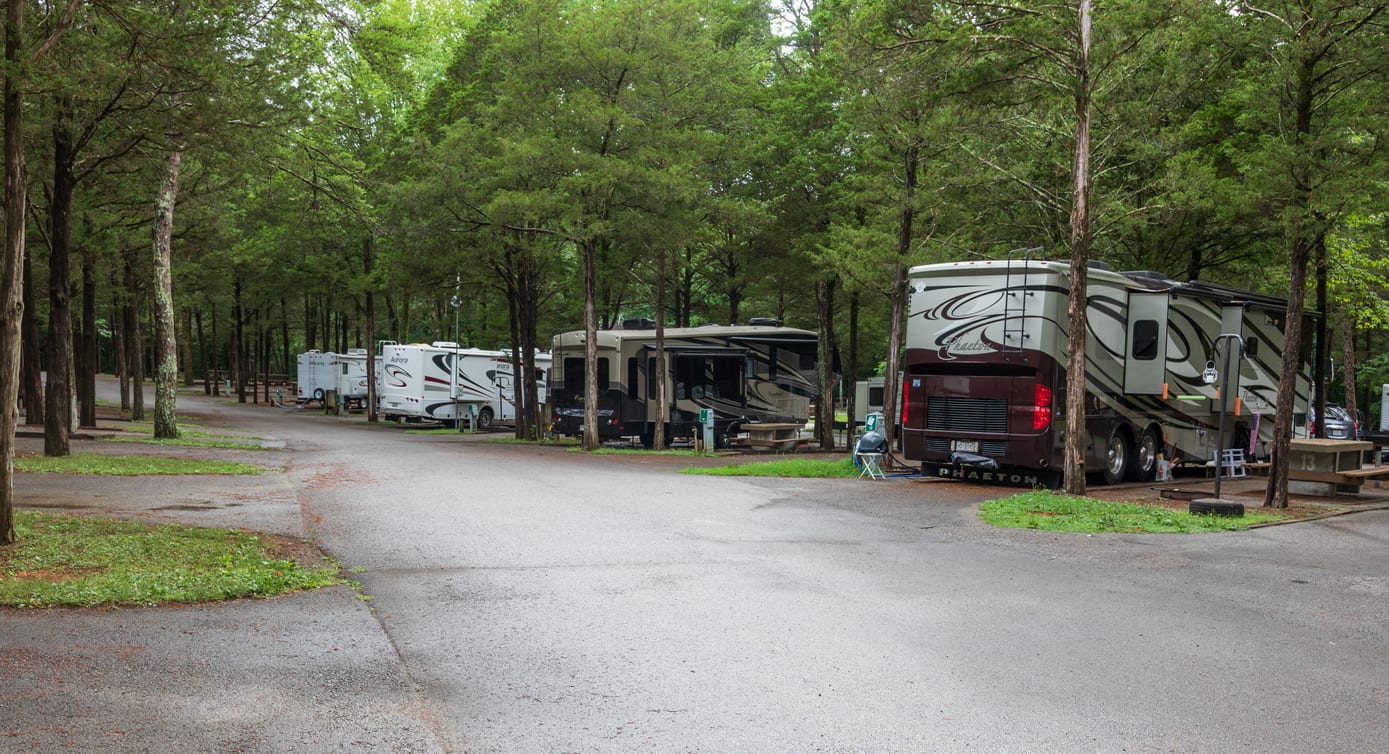RV camping has become tremendously popular in the U.S., as is evidenced by the vast number of RV campgrounds now available throughout the country. It’s recommended that, before your RV trip, you make reservations at the campground(s) where you want to stay. This is especially important during the busy times of year.
You may be amazed at the number of choices you have when choosing campgrounds. You’ll have to decide things like:
- What locations most interest you and the family
- What are the different site options available in each of your preferred campground(s)
- What amenities are available, such as swimming pools, basketball court, tennis court, playgrounds, miniature golf, etc.
- What extracurricular activities are there, such as game rooms, bingo games, card playing tournaments and other entertainment
- What hookups are available such as water, electric, sewer and internet access
- What are the costs for renting a site
Public VS Private
You’ll find that RV campgrounds are broken down into two categories – public and private. Private campgrounds are owned by private citizens or companies who run these parks as a business for profit. Those owned by individuals may have owners who live with their families on the premises or at some nearby location. Those owned by companies, such as Yogi Bear’s Jellystone Park Camp-Resorts, may have dozens of parks throughout the U.S.
Public RV campgrounds are run by local, state or federal government agencies, with government employees, often rangers, on site to oversee things. Public RV campgrounds are often situated in or near natural geographic features specific to a particular region, often in or near a state or national park. These properties are funded by our tax dollars and are designed around providing outdoor recreational activities where people can enjoy the beauty and benefits of being out in nature.
Pros and Cons of Each
Because public campgrounds aren’t profit-driven, their sites are usually less expensive to rent and have larger sites. They will typically have fewer amenities and may not have hook-ups at individual sites for water, sewer or electricity. On the plus side, they may be located in some of the most beautiful locations imaginable.
Private campgrounds are usually more convenient, easily accessible from major highways, often near gathering spots like stadiums, concert halls, museums, etc. Making reservations at a private campground is usually easier, with someone on site to answer questions on the phone. Not so with public campgrounds.

